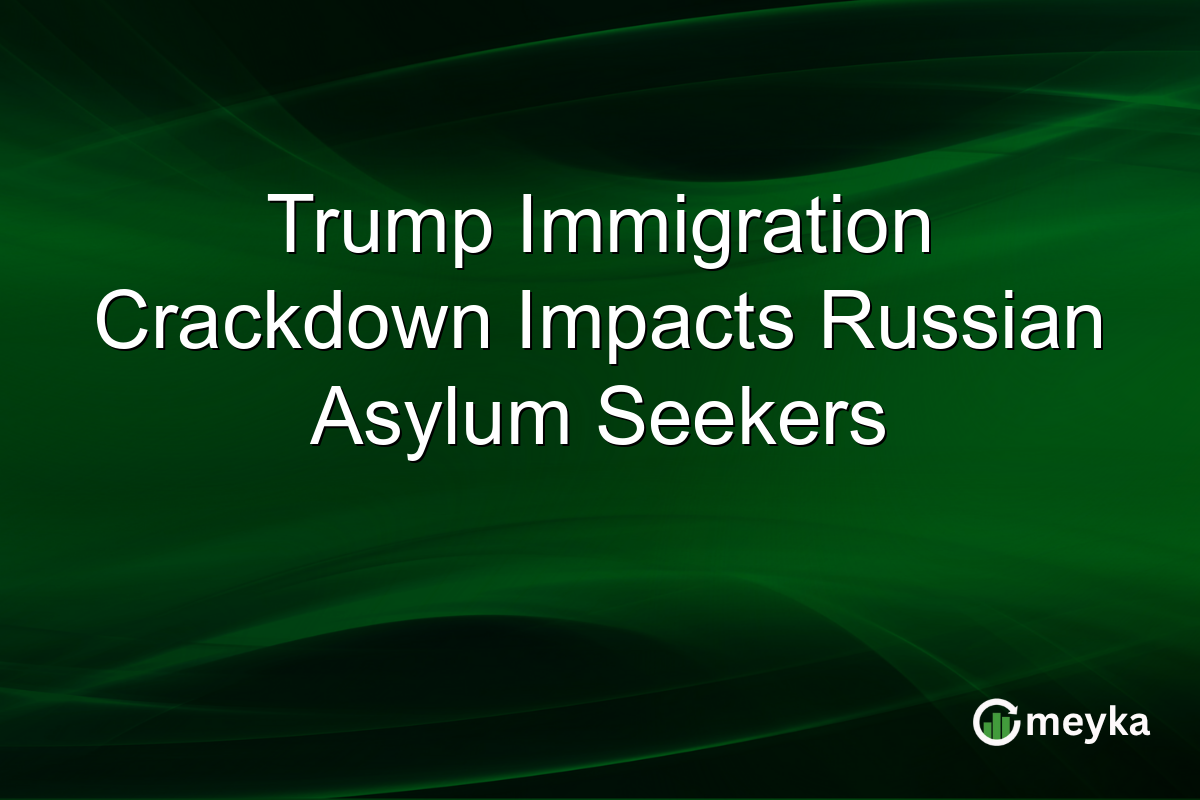Trump Immigration Crackdown Impacts Russian Asylum Seekers
The Trump administration’s intensified immigration policies have surged recently, dramatically affecting Russian asylum seekers in the U.S. These policies, part of a broader immigration crackdown, particularly impact indigenous peoples and minorities from Russia seeking refuge. With tensions between the U.S. and Russia already high, understanding these dynamics is crucial in gauging their geopolitical and human consequences.
Heightened US Deportation Policies
Under the Trump immigration crackdown, the U.S. has increased deportations, significantly impacting Russian asylum seekers. Immigration authorities are recalibrating policies to focus on fast-tracking deportations for those arriving from politically complex regions, like Russia. This has led to higher rates of visa denials and expedited removal processes.
Recently, a tweet highlighted an incident where a group of Russian minority asylum seekers was deported despite pending applications. This reflects the broader trend of diminishing asylum chances for Russians.
The new measures aim at economic and national security concerns but pose substantial risks for individuals fleeing persecution. Those affected often find themselves in legal limbo, facing unpredictable outcomes. Understanding these shifts is essential for those monitoring U.S.–Russia diplomatic relations.
Impact on Russian Asylum Seekers
Russian asylum seekers, including many ethnic minorities, face increasing hurdles under current U.S. deportation policies. The crackdown affects those escaping persecution due to their ethnicity or political opinions. Many fear returning to Russia due to potential threats they initially fled.
This situation exacerbates the challenges for asylum seekers, where legal pathways are already fraught with complexity. Advocacy groups have raised alarms about these deportation initiatives, arguing they violate international asylum protocols. These developments underscore the heightened vulnerability of Russian minorities seeking refuge in the U.S.
The climate of insecurity for these individuals signals broader implications for international human rights, as enforcement measures intensify without robust legal pathways for protection.
Geopolitical and Human Consequences
Trump’s immigration policies are reshaping the geopolitical landscape and humanizing the narratives behind political strategies. The focus on Russian asylum seekers highlights the intertwining complexities of U.S.-Russia relations. As geopolitical tensions rise, human impacts become more pronounced and multifaceted.
Analyzing this crackdown provides insight into not only political strategy but also international human rights dynamics. Russian asylum seekers find themselves at the crossroads of global politics and national policy changes, caught between complex diplomatic relations and their quest for safety.
This issue draws attention to the need for balanced policies that also consider humanitarian principles, ensuring vulnerable populations aren’t sidelined amidst policy overhauls.
Final Thoughts
The Trump immigration crackdown has left a noticeable imprint on Russian asylum seekers, intertwining with broader geopolitical issues. For policy observers, these developments highlight a critical intersection of immigration law and international relations. Balancing national security with humanitarian protection remains an ongoing policy challenge.
As U.S.–Russia tensions persist, the ripple effects on individuals continue to demand attention. This situation underscores the importance of crafting policies that align security goals with the protection of vulnerable asylum seekers.
Looking ahead, the focus must remain on fair processes that respect international asylum rights, recognizing the human stakes involved. The path forward involves ensuring justice and rights preservation alongside domestic security concerns, a nuanced balance vital for sustainable international diplomacy.
FAQs
The Trump immigration crackdown has resulted in faster deportations and increased visa denials for Russian asylum seekers, particularly affecting ethnic minorities fleeing persecution. Legal complexities and reduced asylum chances are key impacts.
Russian ethnic minorities are often targeted due to their ethnic backgrounds and political beliefs. The intensified deportation policies disproportionately impact those who face persecution in Russia, increasing their vulnerability.
U.S. immigration policies, including fast-tracked deportations of Russian asylum seekers, complicate U.S.-Russia relations. They highlight human rights concerns, impacting diplomatic dialogue and emphasizing ongoing geopolitical tensions.
Disclaimer:
This is for information only, not financial advice. Always do your research.






